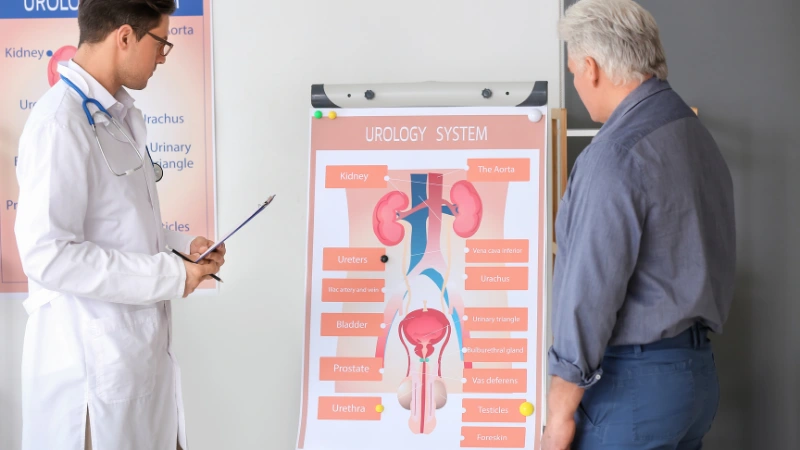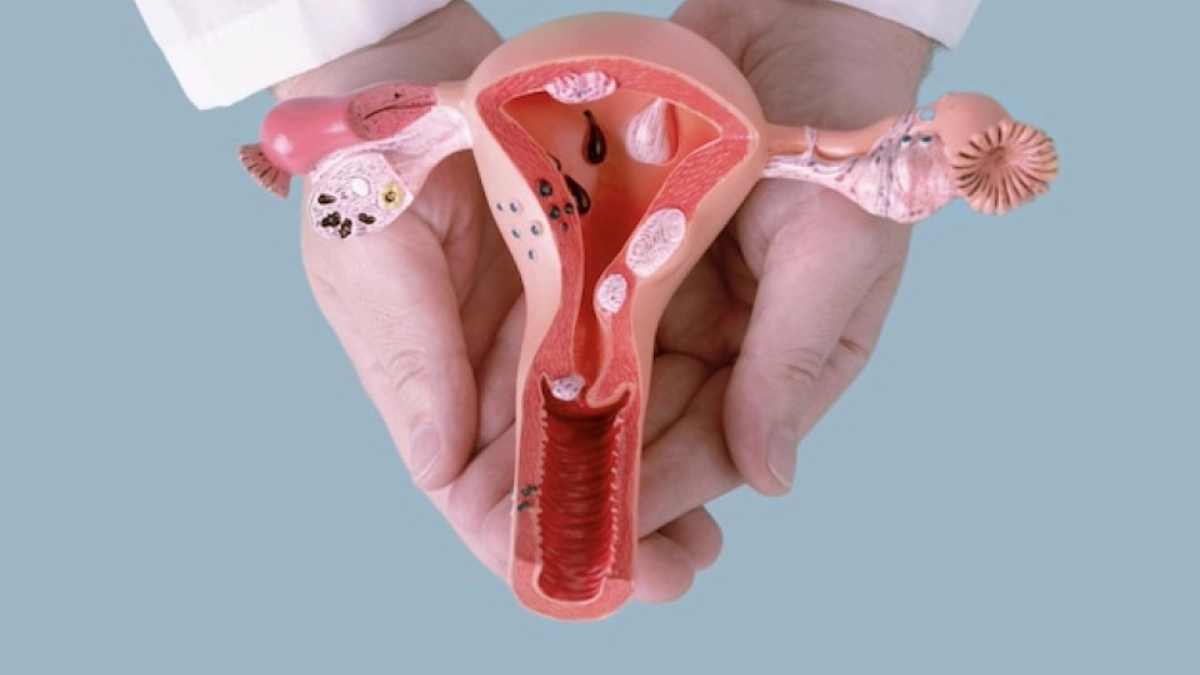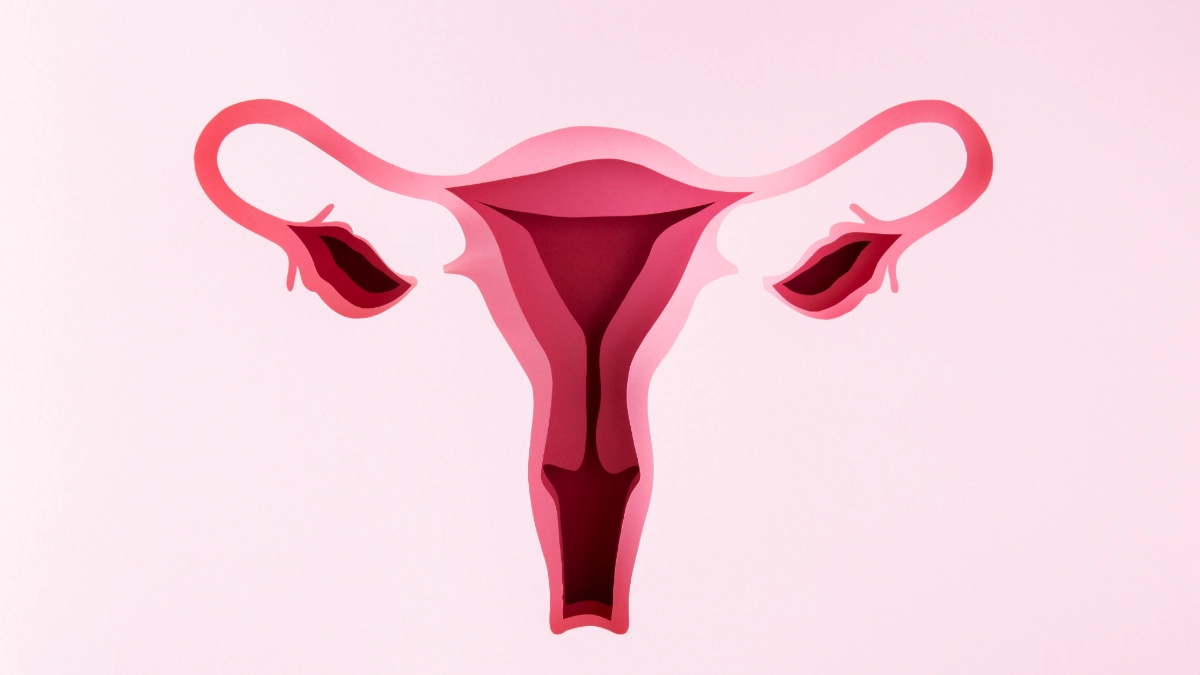Benign Prostatic Enlargement Symptoms
The symptoms of benign prostatic hyperplasia(BPH) differ from person to person, however, the following are some of the more common ones:
- Difficulty starting to urinate or a weak urine stream
- A frequent need to urinate, particularly at night
- The feeling of not being able to empty the bladder
- Interrupted urine flow after urination
- Straining or pushing to urinate
- Pain or discomfort during urination or ejaculation
- Blood in the urine
You should know that some men might not even exhibit any symptoms. However, if left untreated, BPH can cause consequences such as urinary tract infections, bladder stones, and, in rare circumstances, bladder or kidney damage.
Who has a Higher Chance of Getting Benign Prostate Enlargement?
Although the specific cause of benign prostatic enlargement is unknown, various factors are thought to contribute to the illness. Among the most prevalent reasons are:
- Age. BPH is usually diagnosed in men older than 50, and the risk rises with age.
- Hormones. Furthermore, the male sex hormone testosterone stimulates the growth of the prostate gland, which is converted to dihydrotestosterone (DHT) by an enzyme called 5-alpha reductase. As men age, testosterone and DHT levels may rise, leading to prostate enlargement.
- Genetics. BPH may have a genetic component, according to some research, because the disorder occurs in families.
- Metabolic syndrome. Moreover, men with this syndrome, a disorder that raises the risk of stroke, diabetes, and heart disease, may be more likely to develop BPH.
- Lifestyle factors. Men who eat a diet heavy in red meat, dairy products, and saturated fats may be at a higher risk of getting BPH.
-
Diagnosis of Prostate Enlargement
A physical examination and an analysis of your medical history and symptoms are usually used to diagnose prostate enlargement. Furthermore, A digital rectal exam (DRE) may be performed by an expert to feel the size and texture of the prostate gland.
The following are some frequent tests to detect BPH:
Test to measure urine flow. This test measures the force and flow of urine when you urinate.
Measurement of post-void residual (PVR). As a result, this test determines how much urine remains in the bladder after urinating.
Blood test for prostate-specific antigen (PSA). This test gauges the prostate gland’s production of PSA, a protein. A PSA test is performed to rule out prostate cancer since elevated PSA levels might be an indication of the disease
Ultrasound examination. the prostate gland is seen in great detail using sound waves.
Uroflowmetry. This examination measures the rate at which urine is produced when urinating.
Cystoscopy. A tiny tube with a camera at the end is used to view the bladder and urethra within the body.
The results of these tests will allow the doctor to identify prostate enlargement and suggest a suitable treatment plan. So, a biopsy may sometimes be required to rule out prostate cancer.
How to Treat Prostate Enlargement?
The intensity of the symptoms and the patient’s preferences influence the range of benign prostatic enlargement (BPH) treatment choices. Medical treatments or surgery may be recommended in certain situations while none may be required in others.
Options for medical treatment include Alpha-blockers or Combination therapy.
Options for surgery include:
- Rezum. It is a minimally invasive option for treatment. Furthermore, it uses water vapour (steam) to destroy excess prostate tissue, which helps to relieve symptoms.
- Prostate transurethral resection(TURP). It involves removing excess prostate tissue through the urethra using a resectoscope.
- Laser surgery. This procedure uses a laser to vaporize excess prostate tissue.
- Prostate transurethral incision (TUIP). This procedure involves creating prostate-specific tiny incisions to widen the urethra.
- Open prostatectomy. This is a more invasive surgery that involves making an incision in the abdomen to remove excess prostate tissue.
Prostatic Enlargement Complications
Although it can result in a variety of symptoms, prostate enlargement is a common illness that is not cancerous. BPH, however, can occasionally cause difficulties if it is not treated. The following are some of the most frequent complications:
- Urinary tract infections
- Bladder stones
- Bladder damage
- Kidney damage
- Acute urinary retention





